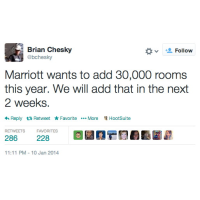San Francisco Snapshot of Airbnb Finds Few Couches Being Slept On

San Francisco-based Airbnb is so new and sufficiently opaque that little is known about the company and its website―used by people to rent out their homes, or part of them, short-term―beyond the anecdotal complaints of neighbors, landlords and municipalities put out by them.
So the San Francisco Chronicle hired a data harvesting firm—Connotate Inc.—that took a snapshot of Airbnb’s website on May 19 and literally painted a portrait of what impact the company is having on its hometown.
San Francisco’s housing market is being transformed by an influx of tech dollars in an otherwise stagnant economy, squeezing low- and middle-income renters out of their homes. Critics of Airbnb say the website shrinks the housing market by repurposing houses and apartments as short-term rentals vying with the hotel industry for tourists, businessmen and other city visitors.
Defenders say that isn’t so. The stays are short-term and often involve just a portion of someone’s already-occupied home. Airbnb encourages people to visit the city, puts some dollars in the host’s pocket and saves travelers money, they say.
The Chronicle study found 4,798 properties listed on Airbnb in San Francisco. They included some shared and private rooms and at least one tree house. But almost two-thirds involved an entire house or apartment. One hundred and sixty properties appeared to be rented full-time.
Connotate couldn’t track how often a space was rented, so it sifted through reviews by clients to get a sense of how long people stayed. The answer was―not long. Only one-fourth showed significant traffic, reflected by 11-50 reviews. Two-thirds of the listings had 10 or less.
Around 86% of the 3,785 hosts were only involved with one property. But 513 hosts operated two or three. Connotate didn’t find the big illegal hotels it found in New York City through Airbnb.
San Francisco has a law against short-term rentals. Landlords have been evicting some tenants who make some money using Airbnb despite their complaints that the company didn’t give any indication there were legal issues involved.
The 6-year-old company, which claims business in “34,000 cities in 192 countries,” is fighting with state and local governments over whether they should be covered by regulations that govern rental markets and the hotel industry or be treated as something new and different.
Critics say the innovative business models of Airbnb and ride-sharing companies like Uber, that link seller and client, rely for their profitability on skirting laws that ensure safety and fund government oversight. The hotel industry calls Airbnb, which only recently agreed to factor in a San Francisco hotel tax, unfair competition. And it also pisses off neighbors and landlords who don’t want unaccountable strangers roaming about.
But, for now, Airbnb isn’t going anywhere. Although a study by technology blogger Tom Slee at Whimsley indicated that the company has had a net loss of listings in San Francisco from November 2013 to May 2014, investors have poured in around $450 million, setting the company’s valuation at $10 billion. That’s more than Wyndham Worldwide Corp ($9.4 billion) and Hyatt Hotels Corp. ($8.4 billion).
That’s not as high as Uber’s $17 billion. But not shabby for a start-up.
–Ken Broder
To Learn More:
Window into Airbnb’s Hidden Impact on S.F. (by Carolyn Said, San Francisco Chronicle)
City Agencies Defend Their Slow Response to Airbnb's Illegal Rentals (by Steven T. Jones, San Francisco Bay Guardian)
Even More Data about Airbnb’s Impact in San Francisco (by Carolyn Said, San Francisco Chronicle)
The Shape of Airbnb’s Business (II) (by Tom Slee, Whimsley)
San Francisco Landlords Using Evictions to Punish Airbnb Hosts (by Ken Broder, AllGov California)
- Top Stories
- Controversies
- Where is the Money Going?
- California and the Nation
- Appointments and Resignations
- Unusual News
- Latest News
- California Forbids U.S. Immigration Agents from Pretending to be Police
- California Lawmakers Urged to Strip “Self-Dealing” Tax Board of Its Duties
- Big Oil’s Grip on California
- Santa Cruz Police See Homeland Security Betrayal in Use of Gang Roundup as Cover for Immigration Raid
- Oil Companies Face Deadline to Stop Polluting California Groundwater





